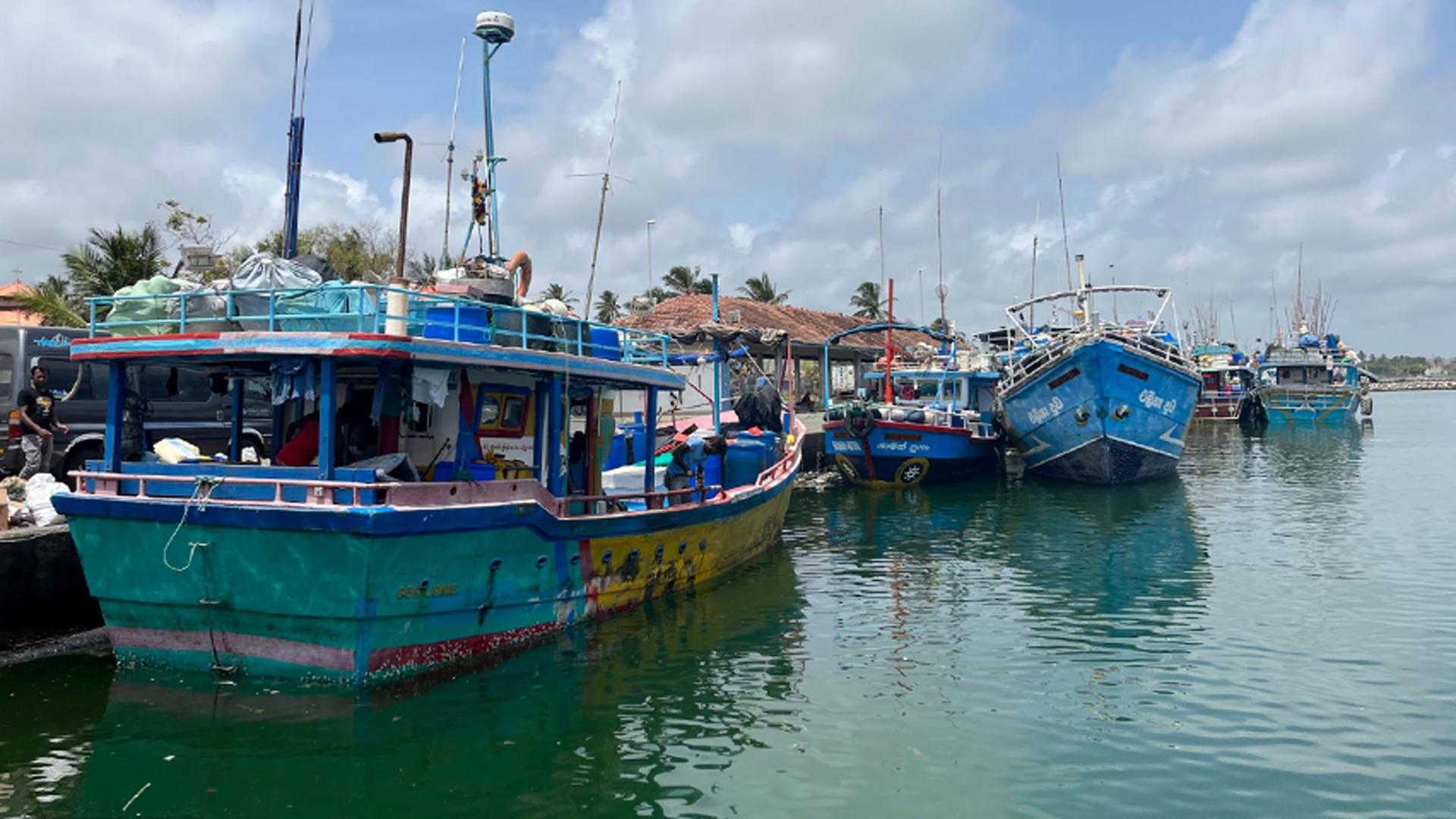Sri Lanka’s fuel crisis has been affecting every aspect of life on the island nation of 22 million people, including the country’s ability to harvest fish from the surrounding sea.
The impact is clearly visible at a main fishing harbor just outside the financial capital Colombo, where double the usual number of boats are docked.
Boat captain Saman Indica said he usually spends little more than a week at the dock between his several-week trips catching salmon and other large fish — just long enough to unload his catch, get new supplies and refuel.
“But this time, it took us 2 1/2 months to get the diesel,” he said through an interpreter, “so, it’s been a long time since we went out.”
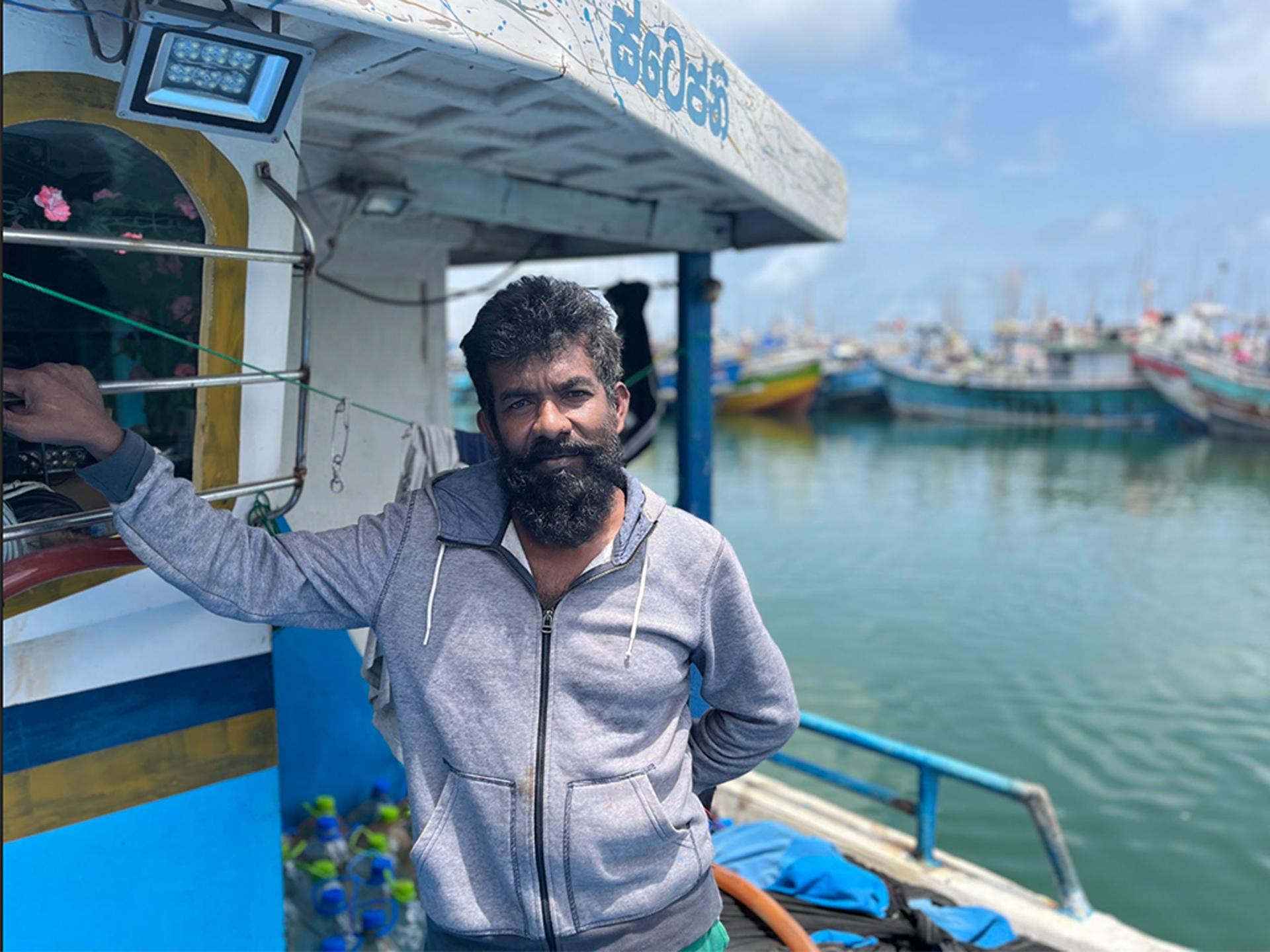
Sitting behind the wheel of his boat at the Dikkowita Fisheries Harbor, looking every bit the part of boat captain with a long, bushy black beard, Indica said his seven crew members and their families depend on the income from the fishing trips.
“Sitting at home for 2 1/2 months means there’s no income for our families,” he said.
Sri Lanka is struggling with the worst economic crisis the country has seen in generations. The island imports its fuel, and lacks enough dollars to buy adequate supplies of gasoline, diesel, cooking gas and kerosene.
The country defaulted on its debt in May, and is now in talks with the International Monetary Fund about a bailout deal.
Earlier this week, finally fueled up, Indica planned to head to sea just as soon as he could secure more cooking gas.
He said that for the first time, he’s been nervous about his ship getting robbed.
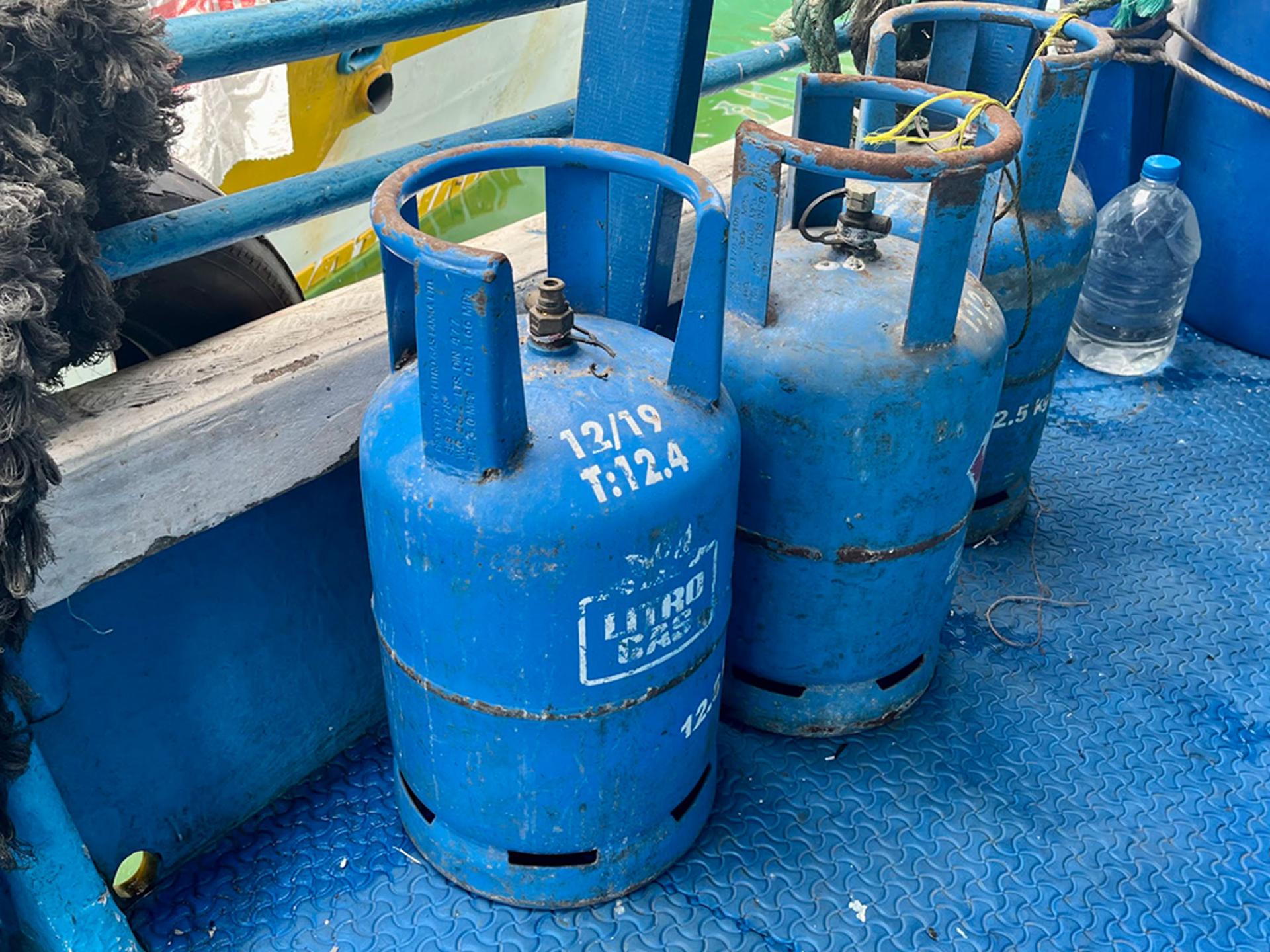
“While we were in port, we had to have one of the crew on guard day and night,” he said. “We don’t want anyone sneaking in here and stealing anything, especially the gas cylinders.”
Fishing and related industries employ more than 10% of Sri Lanka’s population, according to government statistics. And fish makes up about half of the animal protein in people’s diets.
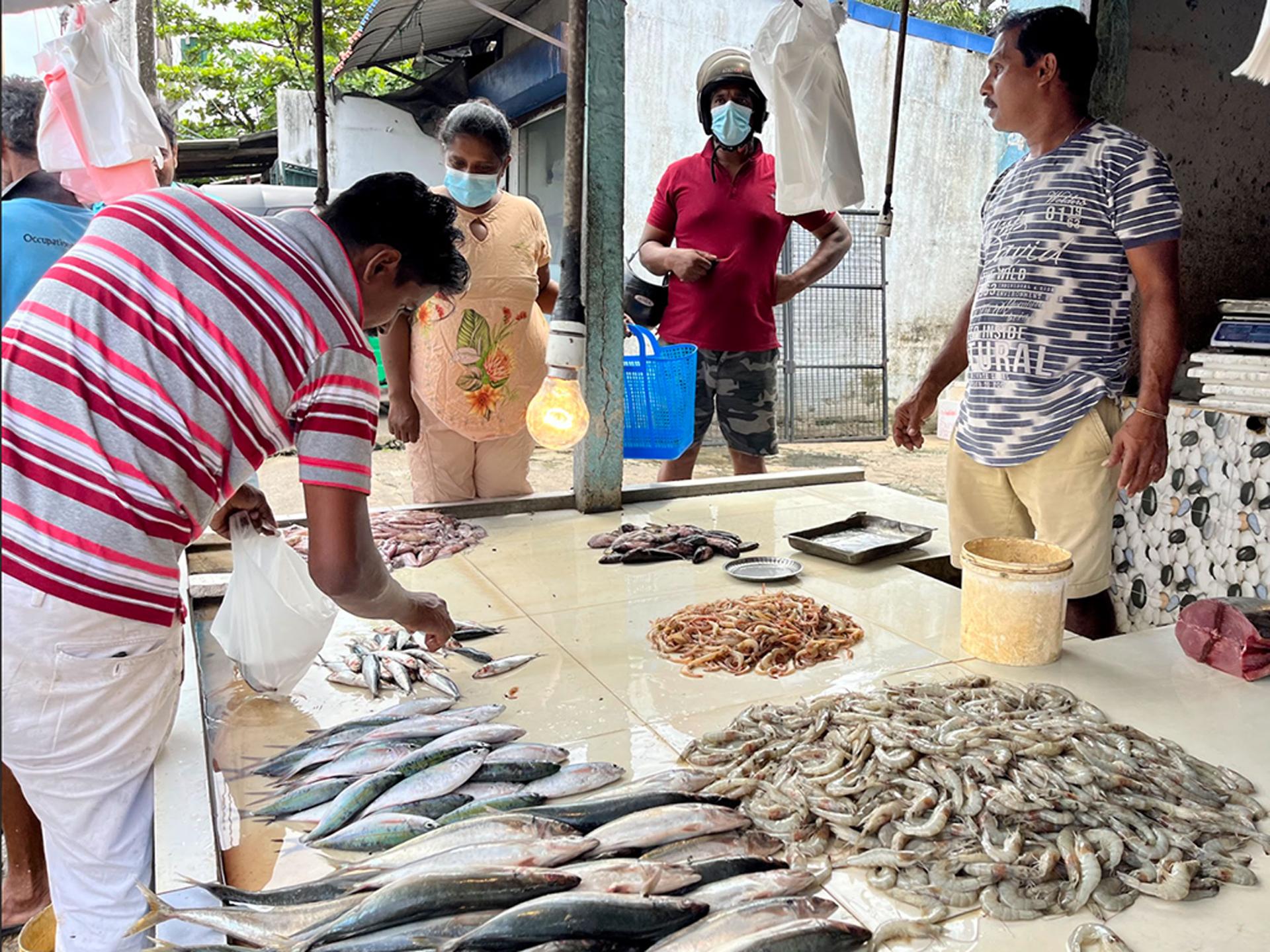
In the kitchen of the Galle Face Hotel, a colonial-era seaside spot in Colombo, chef Saman Jayawardana said that fish dishes make up about 20% of sales from his guests. And for staff meals, it’s on the menu all seven days of the week.
“Every day it is there,” he said, standing in his chef’s uniform in his gleaming kitchen.
Lots of Sri Lankans don’t eat beef or pork for religious reasons, and fish — fried, fresh, dried or fermented — is an important part of the cuisine.
The country’s fuel shortages mean that it’s harder for hotels and restaurants to supply fish, so less of it is on sale at markets around the country.
Just north of Colombo, fish stalls lining a canal-side road now stand mostly empty. One of the handful of them that is open is receiving about half the catch that it used to get, according to fish seller Chaminda Jayalath.
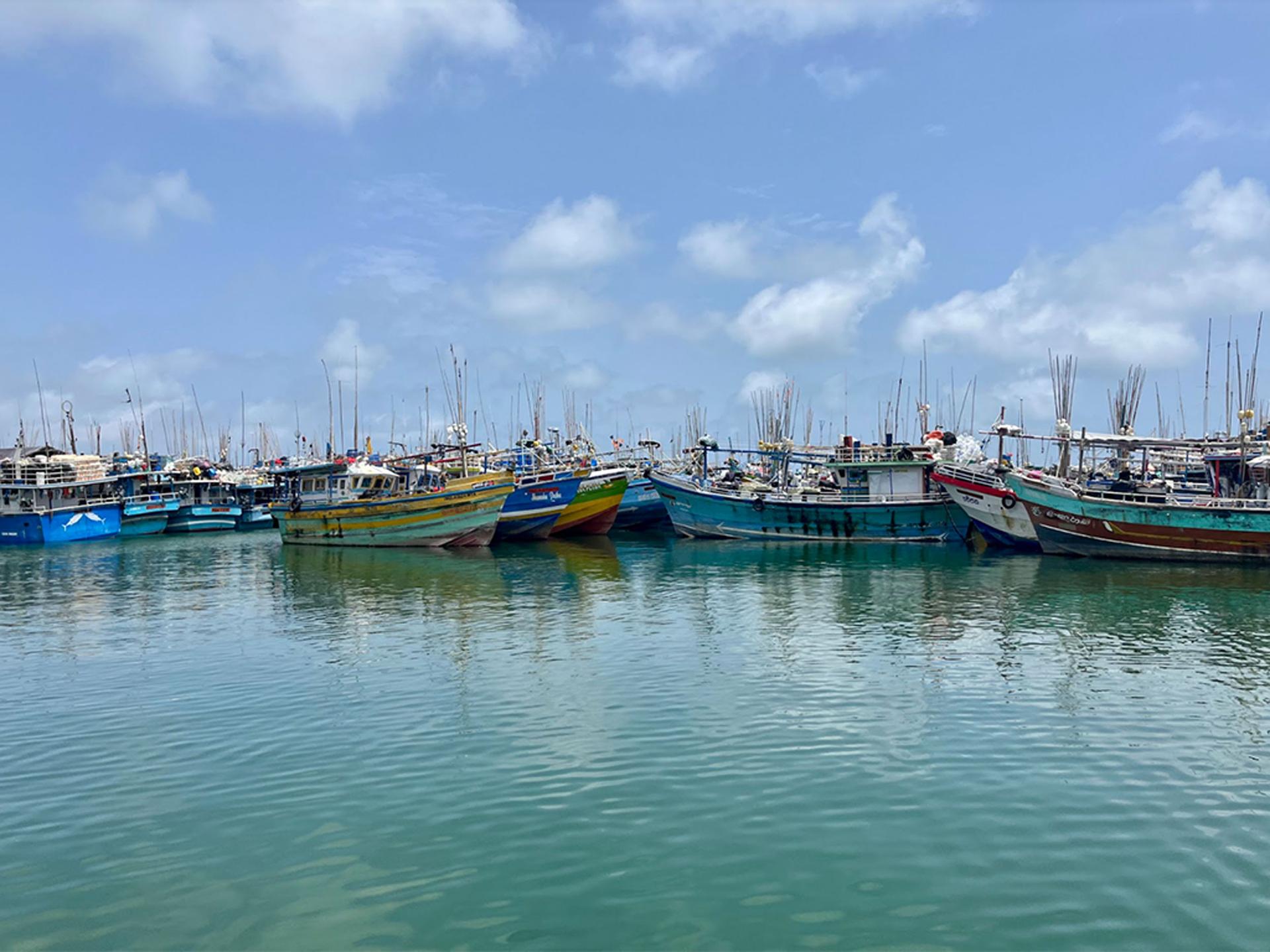
Prices are up and his revenue is down by half.
“Even more than the lack of diesel, it’s the lack of kerosene oil,” Jayalath said from behind his counter, taking a break from scooping up shrimp into plastic bags for customers. “Because the small boats that go out for the day use kerosene oil and there’s no kerosene at all.”
Across the street from his stall is the canal, where these smaller day boats used to pull up to sell their catch to vendors. Now, there are lines of overturned boats on the banks of the canal, looking like they haven’t been touched in weeks.
A lack of supply and rising inflation are driving prices up. Jayalath said that he’s selling prawns for about $11 a pound. Four months ago, however, it was less than half of that, just over $4. He said price hikes for the other half-dozen fish varieties on his counter are similar.
Inflation for food items across the board was up more than 75% year-over-year in June, according to Sri Lanka’s central bank.
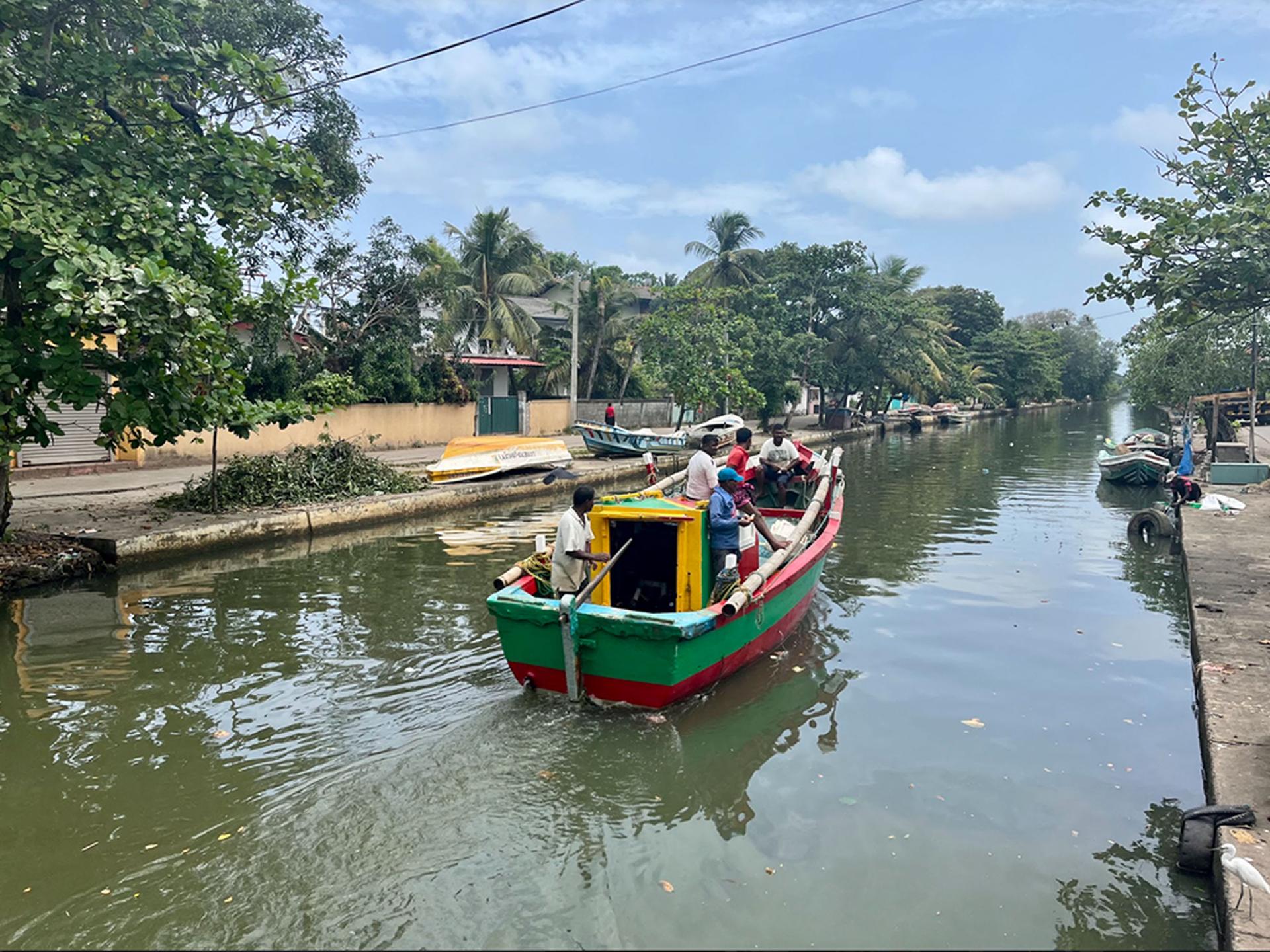
Magline Rajaamine was buying cuttlefish, prawns and mackerel at the fish stall to make a curry for her family. She said she’s buying about a half or a quarter as much fish as she used to, since prices have skyrocketed, and making it stretch for the same number of meals.
Rajaamine, a head nurse at a private hospital in Colombo, said she’s cutting back on vegetables and other food too, but isn’t going hungry.
Others are not so lucky, and the UN World Food Program says that 5 million Sri Lankans have reported that they’re skipping meals to get by.
Related: Sri Lankans wait in line for days to refuel their vehicles amid shortages, economic crisis
